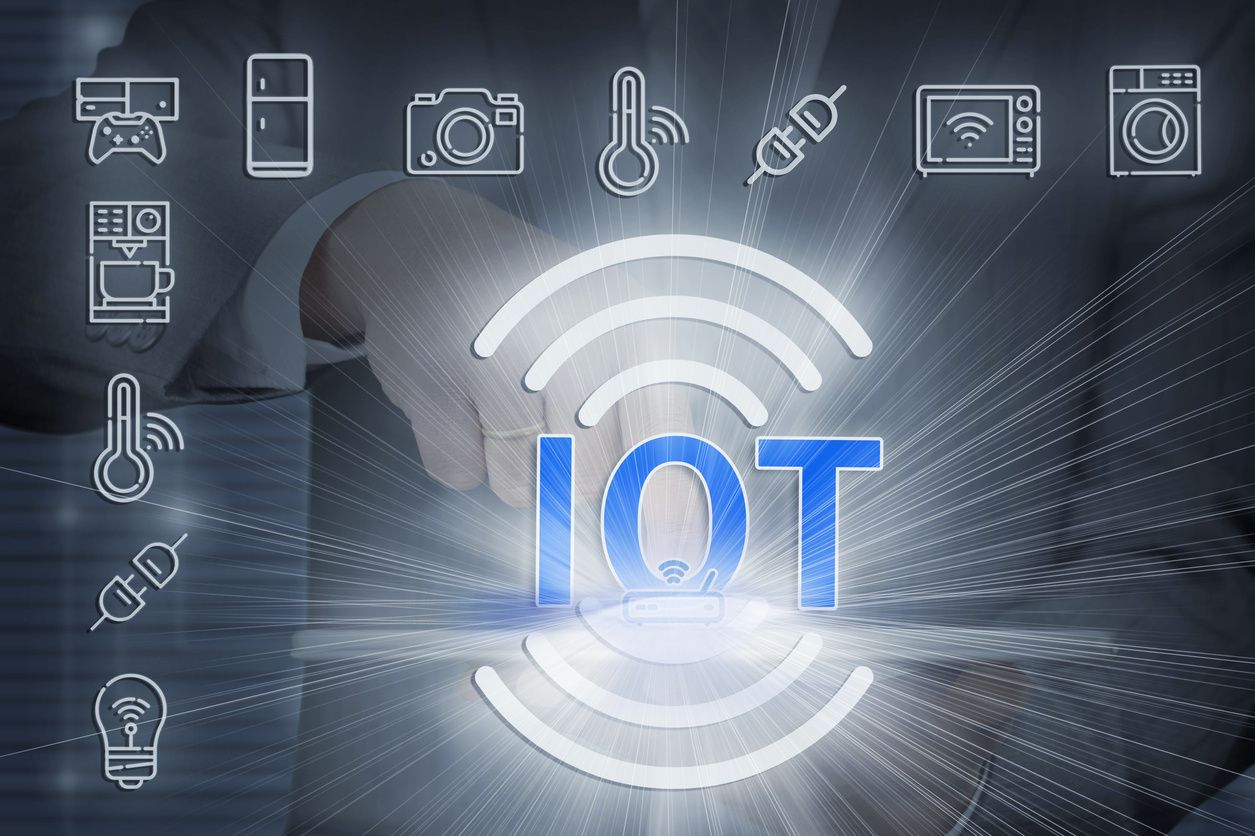Rivetz, Protecting Devices with Rivet Tokens
One of the biggest challenges facing the Internet of Things (IoT), whether it's commercial or consumer-based, is security. How do we protect all these new devices from unwanted visitors or hackers? At GearBrain, we believe security must be built into the devices. Many consumers are not going to be able to download software to all their devices. Many still don't know what the devices do or the benefits they offer. To ask them to download a security patch for their smart home system will not work. Security protocols must be built in to the new connected devices and placed there by the manufacturers. One company that has come up with an innovative way to help secure your connected devices is Rivetz. Their technology is sound but might be a little complicated for some to understand. Therefore, we are going to put this in to layman's terms for all to understand.
When people meet, immediately we begin processing hundreds of clues to identify the individual and assess their state. Even before you say "hello", you establish who the person is and take in many indicators to judge how they feel. Imagine meeting your friend one day on the street and he or she has a cold. Without even thinking, you say "hi" but don't shake their hand. These innate skills underlie the basic operation of society. Identification enables us to conjure up the history and capabilities of another person. State allows us to decide whether those capabilities are in working order. If the other person appears to have a broken arm, it may not be a good time to ask for a hand with the grocery bags. If you have no idea who the person is, it might also not be a good idea to hand over all your things. (Disclosure: GearBrain is part of an incubator that also includes a company who has an employee associated with Rivetz.)
When we look at today's new connected world or Internet of Things (IoT) as experts call it, there are billions of connected devices speaking or trying to speak to each other to complete their tasks. Just as with human society, establishing identity and state is a crucial framework for making this work.
This is where Rivetz comes in: to help us establish identity and state for our devices to communicate safely and securely. Rivetz has developed a state-of-the-art toolkit for harnessing the Trusted Execution Environment (TEE) to protect your secrets, your finances, and your privacy. It's like a hidden vault (already embedded in most phones) that no operating systems (OS) or software can eavesdrop on. The company leverages hardware security commonly found in many devices and Bitcoin's "blockchain" security to enable devices to get a tamper resistant identity and those identities to have a tamper resistant history. (Note: Bitcoin's "blockchain" gives the Internet a shared memory.
Identity plays an important role when trying to determine "who is who" or "what is what" on the Internet. When we think of IoT, it's critical to establish the identity of all devices, especially the ones you have met before. For instance, if the boiler can identify that the thermostat to which it was introduced is the same thermostat as before, it can conclude that the device should be trusted to give it instructions.
Many companies have tried to tackle this issue and have had difficulties. Rivetz has developed new crucial innovations which can solve these issues and secure IoT devices. The first is using Trusted Execution hardware that enables devices to hold and process identity keys that other software can't see. The second is to disentangle any one company from managing these device identities by employing the same backend that protects Bitcoin to record devices and their state.
If this weren't enough, a third innovation is perhaps the most interesting. Rivetz has recognized that trust is always subjective, even in the digital world. They call this " Health Attestation". If a device reliably claims to be 1234, but shows up with a new firmware and apps, maybe it's worth asking a few more questions before engaging.
Rivetz is serious about making this network open and autonomous. It's the only way the system can be trusted with the delicate business of trust itself.
To this end, they are employing a new tool for financing and operating the service. Instead of raising money from a handful of investors in Silicon Valley, the company is introducing a Rivet Token (RvT) that functions much like Bitcoin itself. However, instead of representing monetary value the Rivet confers the right to participate in the network. Its own value then determined by how it aids in the authentication and verification of devices throughout the Internet.
GearBrain is intrigued with Rivetz and how they are tackling one of the key concerns among consumers regarding IoT or connected devices, security. Utilizing the hardware security embedded in connected devices is smart. It's a good way for manufacturers to build security into their connected devices. Rivetz has over 1.6 billion computers with their Rivet Token and growing.
Two factor authentications are important to securing customers' devices and transactions from being exposed in our new connected world. Rivetz offers a state-of-the-art technology which can protect our privacy, finances and all connected devices in our home, office or car. Many manufacturers should consider using Rivetz to help secure their connected devices and any transactions on the Internet completed using their products. It just might help more consumers feel better knowing their devices can be secured from hackers without having to download a security software onto their connected devices.
You can check out Rivetz site to learn more about the Rivet Token by visiting their website.
